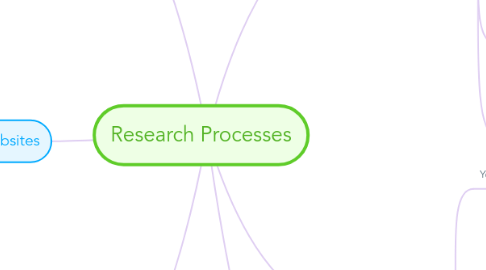
1. Books
1.1. It would be good if I find a book written by someone who had an ED. This would greatly benefit my outcome because they are writing on their own personal experience as well as being quite easy to find.
1.2. https://www.questia.com/library/psychology/mental-health/eating-disorders - very good list of books and articles on eating disorders
1.3. Journal/ ebooks / pamphlets.
1.3.1. Can be found at state library which will be very solid and reliable information. Ebooks are very easy to access, online, but journals may be more difficult. Pamphlets would be a useful source as they are short, and contain very reliable information. They may also contain interviews with someone who has had an ED.
2. Websites
2.1. Very easy to find, however may not be reliable. I will need to thoroughly check the credibility of the author and the reliability of the source. I will also need to check for bias and exaggeration. They are a good source for backing up information of reliable sources such as interviews and other primary sources.
2.2. The Butterfly foundation is a good example of a reliable website. They are a health organisation who are funded by volunteers and companies. The Butterfly Foundation, 2017, https://thebutterflyfoundation.org.au/, accessed 17th Feburary, 2017.
2.3. Headspace is also another very reliable source as they have credible authors. They are the National Youth Mental Health Foundation who provide early intervention for mental health services. Headspace, 2017, Understanding Eating Disorders, https://headspace.org.au/health-professionals/, accessed 17th Feburary, 2017.
2.4. Used towards the start of my research, to gain a broad aspect on my topic. A lot of
3. Documentaries
3.1. These could be extremely useful to my research project as it is usually an expert speaking on an area they have studied in University. They are almost always very knowledgeable and reliable.
3.1.1. Just Eat
3.1.2. Thin
3.1.3. Someday Melissa
3.2. http://www.healthline.com/health/eating-disorders/ http://www.takepart.com/article/top-9-films-about-eating-disorders - list of documentaries and videos on Eating Disorders
3.3. Will be used towards the start of my research, after the websites. Then I have a basic idea of my topic and the documentaries can be used to validate the websites.
4. Interviews
4.1. Psychiatrists
4.1.1. Diagnoses and treats mental, emotional and behavioural disorders. Information may be confidential and they may not be able to share with me.
4.1.1.1. List of psychiatrists to email: Yellow Pages https://www.yellowpages.com.au/find/,
4.2. Nutritionists
4.2.1. Interviewing a person who is very knowledgeable in the nutrition/food areas will give me a bigger insight into the physical aspect of how it effects someones body, as well as how it can be treated. They may also have had clients who have had an eating disorder, so then knowing the social and educational side to it as well. However, it may be confidential information and could be possible they cannot share.
4.2.1.1. Shann Shoab- nutritionist. Very easy to access but may have limited knowledge. It will be interesting to see if she adds to my research.
4.3. Psychologists/ counsellors
4.3.1. Could have experience with teens with an ED.
4.3.1.1. Graeme Shugg? May have experience from previous schools with students. Could gain insight into how the ED affected their grades and education
4.4. Teens who have suffered with an ED
4.4.1. This would be the most useful source, as they can tell me exactly how they felt and how it affected them. However, they may get very emotional and not willing to share as it was a traumatic time in their life. They will also be extremely difficult to find as I'm not sure I know anyone who has suffered with one.
4.4.1.1. Ask around if anyone knows someone who has had one?
4.5. Use towards the end of my research to validate sources and so the most useful information can be used from my primary sources.
5. Videos
5.1. YouTube videos
5.1.1. ED survivors. Very good source as they are speaking from personal experience.
5.1.1.1. Arielle Lee Bair- Actively Arielle: A Voice with a Commitment
5.2. Ted Talks
5.2.1. Scientists, very reliable and credible information. They explain the science behind ED as well as maybe personal experience if they have suffered from one
5.2.1.1. Eating Disorders from the Inside Out- Laura Hill
5.2.1.2. My Battle With Anorexia- Dave Chawner
5.2.1.3. No Body's Perfect: Teenage Eating Disorders- Madison Dunn
5.2.1.4. Why dieting doesn't usually work- Sandra Aamodt
5.2.1.5. Everyone is Hiding Something- Emily Doer
5.2.1.6. Recovering hope in the fight with an eating disorder- Katie & Sarah Comeau
